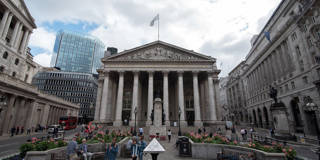One of the few remaining sacred cows of Western capitalism is the independence of central banks from elected governments. But in an age when fiscal policy has become an essential factor in determining the quantity of money lubricating the system, an independent monetary authority no longer makes sense.
ATHENS – Western capitalism has few sacred cows left. It is time to question one of them: the independence of central banks from elected governments.
The rationale for entrusting monetary policy fully to central banks is well understood: politicians, overly tempted during the electoral cycle to create more money, pose a threat to economic stability. While progressives have always protested that central banks can never be truly independent, because their autonomy from elected officials increases their dependence on the financiers they are meant to keep in check, the argument in favor of removing monetary policy from democratic politics has prevailed since the 1970s.
Setting aside the political controversy, central bank independence is predicated on an economic axiom: that money and debt (or credit) are strictly separable. Debt – for example, a government or corporate bond that is bought and sold for a price that is a function of inflation and default risk – can be traded domestically. Money, on the other hand, cannot default and is a means, rather than an object, of exchange (the currency market notwithstanding).

ATHENS – Western capitalism has few sacred cows left. It is time to question one of them: the independence of central banks from elected governments.
The rationale for entrusting monetary policy fully to central banks is well understood: politicians, overly tempted during the electoral cycle to create more money, pose a threat to economic stability. While progressives have always protested that central banks can never be truly independent, because their autonomy from elected officials increases their dependence on the financiers they are meant to keep in check, the argument in favor of removing monetary policy from democratic politics has prevailed since the 1970s.
Setting aside the political controversy, central bank independence is predicated on an economic axiom: that money and debt (or credit) are strictly separable. Debt – for example, a government or corporate bond that is bought and sold for a price that is a function of inflation and default risk – can be traded domestically. Money, on the other hand, cannot default and is a means, rather than an object, of exchange (the currency market notwithstanding).